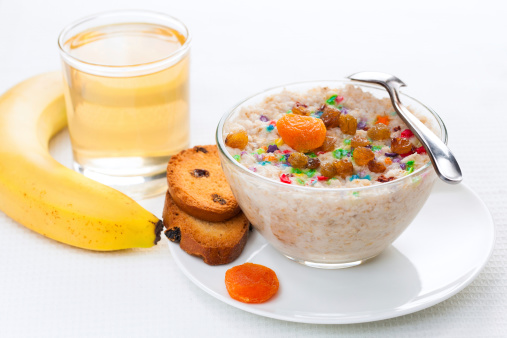
The American Heart Association journal Stroke published an article this afternoon that reinforces the importance of sufficient potassium intake in reducing risk for the most common type of stroke.
The study involved more than 90,000 postmenopausal women aged 50 to 79, who were followed for an average of 11 years. Compared with women who ate a low-potassium diet, those consuming a diet rich in potassium were less likely to have strokes or to die from any cause. The study drew from information collected during the landmark Women’s Health Initiative study of postmenopausal women, in which Einstein played a leading role.
For women in the study who did not have high blood pressure and had a high-potassium diet, their risk of suffering an ischemic stroke (the more common type, caused by a vessel blockage) was 27 percent less than that of women with low potassium intake. And compared with low-potassium-intake women, they had an 8 percent lower risk of dying from any cause during the study.
The researchers found that potassium intake had no effect on the less common type, hemorrhagic stroke, which is caused by sudden bleeding. But since 80 percent of strokes are ischemic, the obvious question for women is: Are you getting enough potassium in your diet? The question might also be valid for men, because earlier studies from the U.S., Europe and elsewhere have established a connection between insufficient potassium intake and increased stroke risk.
The average potassium intake for the women in our study was 2,611 mg per day—far below the U.S. Department of Agriculture (USDA) and the Institute of Medicine recommendation of 4,700 mg of potassium per day (regardless of age or sex). The World Health Organization has a somewhat lower goal of 3,510 mg/day. Americans on average eat 2,640 mg/day, with men consuming more potassium than women.
How do we boost our potassium intake?
Most people know that bananas are rich in potassium. A medium banana contains 422 mg of potassium. But you’d have to eat about 11 bananas a day to reach USDA recommendations. Hardly likely or advisable. A McDonald’s Big Mac has 396 mg, but you’d have to eat about 12 each day to reach the recommended potassium intake—while taking in about 7,000 calories and nearly 13,000 mg of sodium. Also not a viable option.
Fortunately, there are many potassium-rich foods that are good for you. If you’re selective, it’s not hard to get adequate amounts. Here’s a quick rundown:
- 1 baked potato: 926 mg
- 1 cup spinach: 839 mg
- 4 oz. dried apricots: 755 mg
- 6 oz. farmed salmon: 652 mg
- 4 oz. raisins: 598 mg
- 1 banana: 422 mg
- 6 oz. yogurt: 382 mg
- 6 oz. orange juice: 372 mg
- 8 oz. raisin bran cereal: 362 mg
Putting it all together: If you ate one banana (422 mg), a six-ounce container of yogurt (382 mg) and a six-ounce glass of orange juice (372 mg) for breakfast, then six ounces of farmed salmon (652 mg), a cup of cooked spinach (839 mg) and a baked potato (926 mg) for dinner, and snacked on a half-cup of raisins (598 mg) and a half-cup of dried apricots (755 mg), you’d have an intake of 4,946 mg—and that’s not even counting lunch. In general, fruits and vegetables are good sources of potassium, as are milk and dairy products. You can check the potassium content of commonly consumed foods here.
Keep in mind that potassium can be tricky: Researchers have defined a fairly narrow range for “normal” serum potassium levels. But you’re unlikely to overdose by increasing your dietary potassium intake, provided your kidney function is normal.
Kidneys clear potassium from the blood, so people with impaired kidney function who significantly boost their potassium intake may develop abnormally high potassium blood levels. That’s dangerous for the heart—and the reason anyone tempted to reach for potassium supplements in lieu of fruits and vegetables should check with his or her doctor first.
Whether you have impaired kidney function or not, it may be a good idea to ask your doctor for a blood test to determine your baseline potassium level. Then you can discuss whether dietary changes or potassium supplements are advisable. If your doctor suggests supplements, be sure to ask what dose you can safely take.

